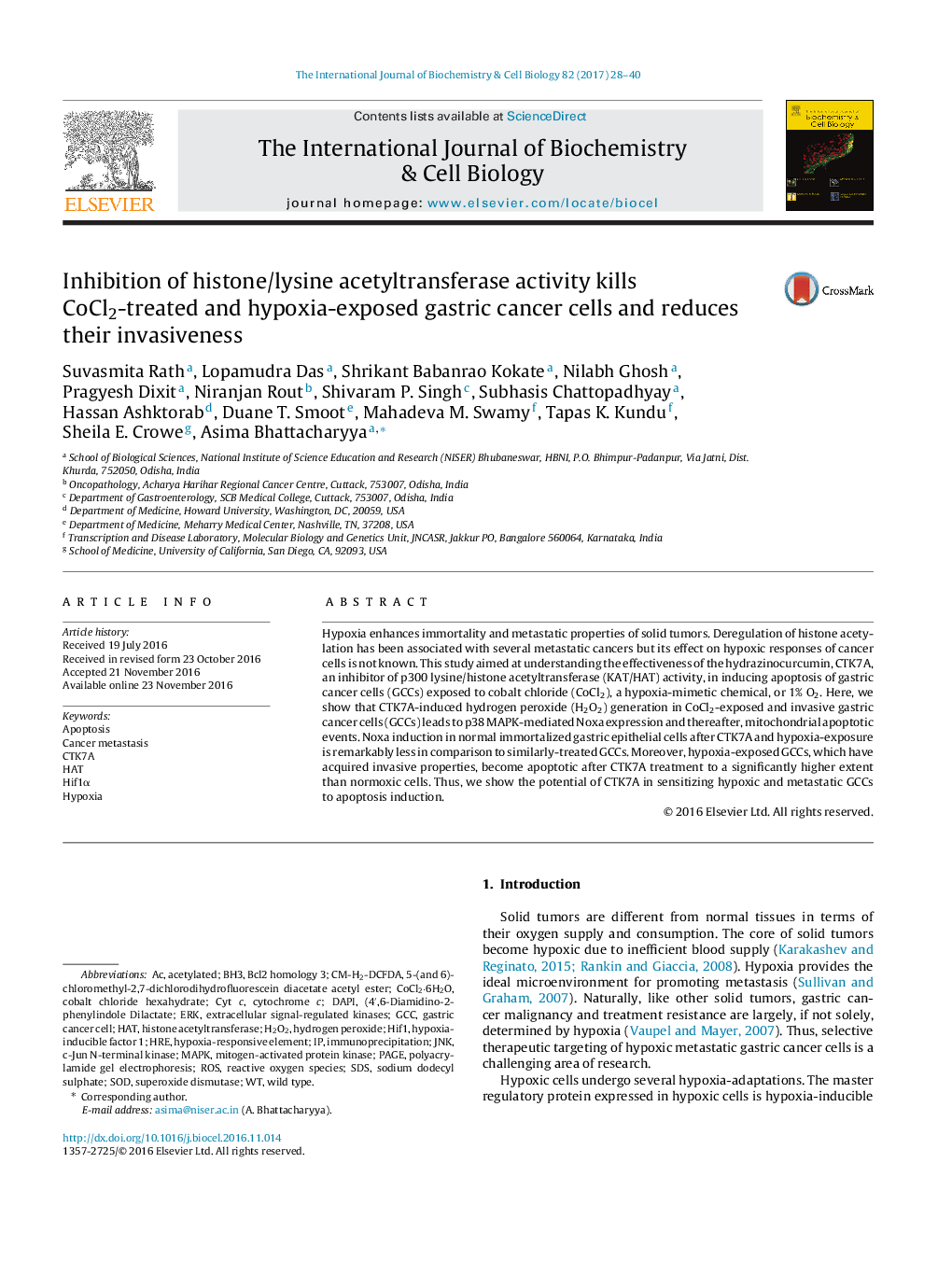| Article ID | Journal | Published Year | Pages | File Type |
|---|---|---|---|---|
| 5511463 | The International Journal of Biochemistry & Cell Biology | 2017 | 13 Pages |
Abstract
Hypoxia enhances immortality and metastatic properties of solid tumors. Deregulation of histone acetylation has been associated with several metastatic cancers but its effect on hypoxic responses of cancer cells is not known. This study aimed at understanding the effectiveness of the hydrazinocurcumin, CTK7A, an inhibitor of p300 lysine/histone acetyltransferase (KAT/HAT) activity, in inducing apoptosis of gastric cancer cells (GCCs) exposed to cobalt chloride (CoCl2), a hypoxia-mimetic chemical, or 1% O2. Here, we show that CTK7A-induced hydrogen peroxide (H2O2) generation in CoCl2-exposed and invasive gastric cancer cells (GCCs) leads to p38 MAPK-mediated Noxa expression and thereafter, mitochondrial apoptotic events. Noxa induction in normal immortalized gastric epithelial cells after CTK7A and hypoxia-exposure is remarkably less in comparison to similarly-treated GCCs. Moreover, hypoxia-exposed GCCs, which have acquired invasive properties, become apoptotic after CTK7A treatment to a significantly higher extent than normoxic cells. Thus, we show the potential of CTK7A in sensitizing hypoxic and metastatic GCCs to apoptosis induction.
Keywords
GCCHIF1PAGEDAPIERKCyt CHREHIF1αBH3JnkSDSc-Jun N-terminal kinaseMAPKROSHydrogen peroxideacetylatedpolyacrylamide gel electrophoresisImmunoprecipitationApoptosisSODsodium dodecyl sulphateGastric cancer cellSuperoxide dismutasecytochrome chypoxia-inducible factor 1hypoxia-responsive elementCancer metastasiswild typeH2O2Histone acetyltransferaseHypoxiamitogen-activated protein kinaseHATextracellular signal-regulated kinasesReactive oxygen species
Related Topics
Life Sciences
Biochemistry, Genetics and Molecular Biology
Biochemistry
Authors
Suvasmita Rath, Lopamudra Das, Shrikant Babanrao Kokate, Nilabh Ghosh, Pragyesh Dixit, Niranjan Rout, Shivaram P. Singh, Subhasis Chattopadhyay, Hassan Ashktorab, Duane T. Smoot, Mahadeva M. Swamy, Tapas K. Kundu, Sheila E. Crowe, Asima Bhattacharyya,
